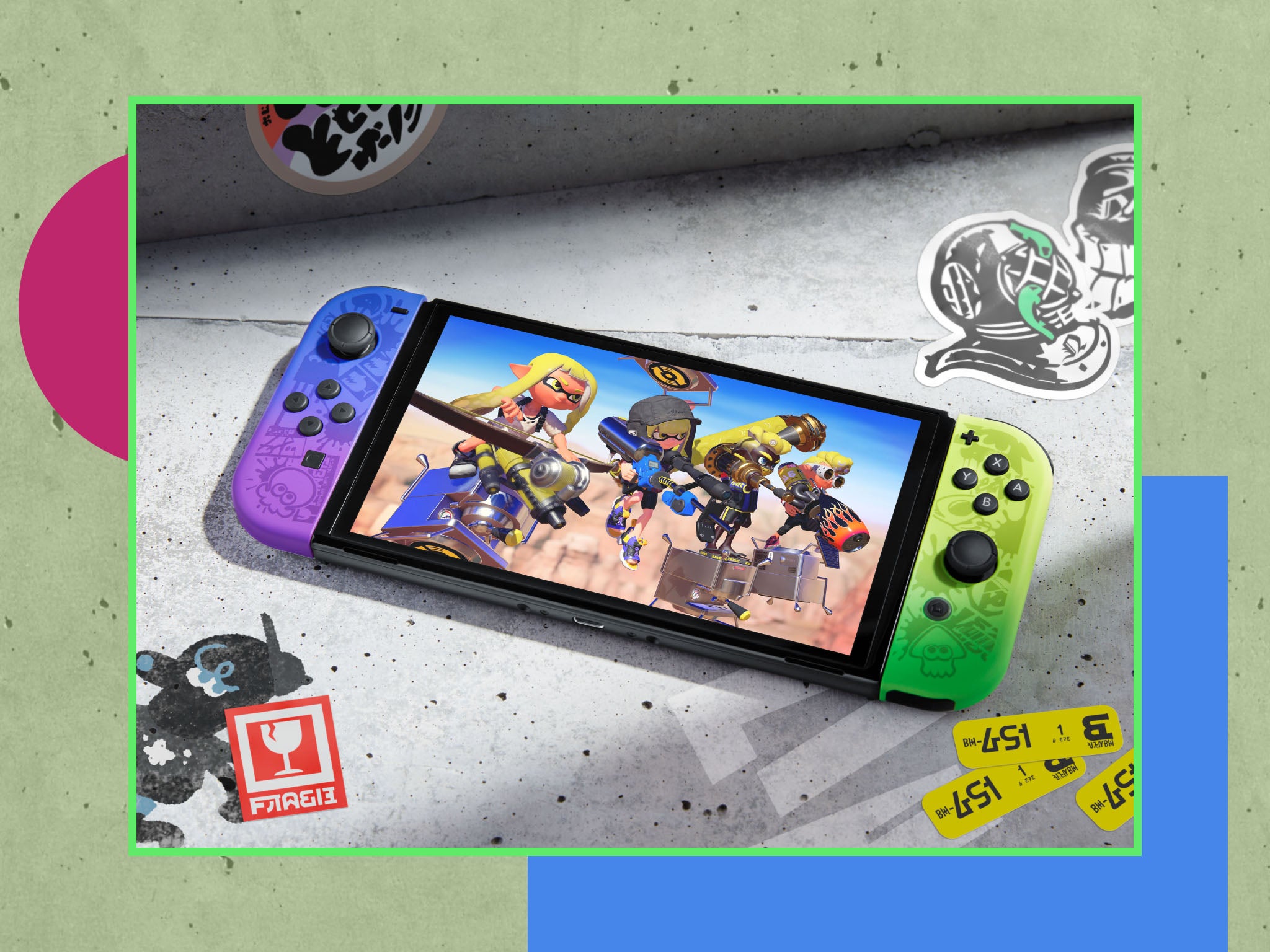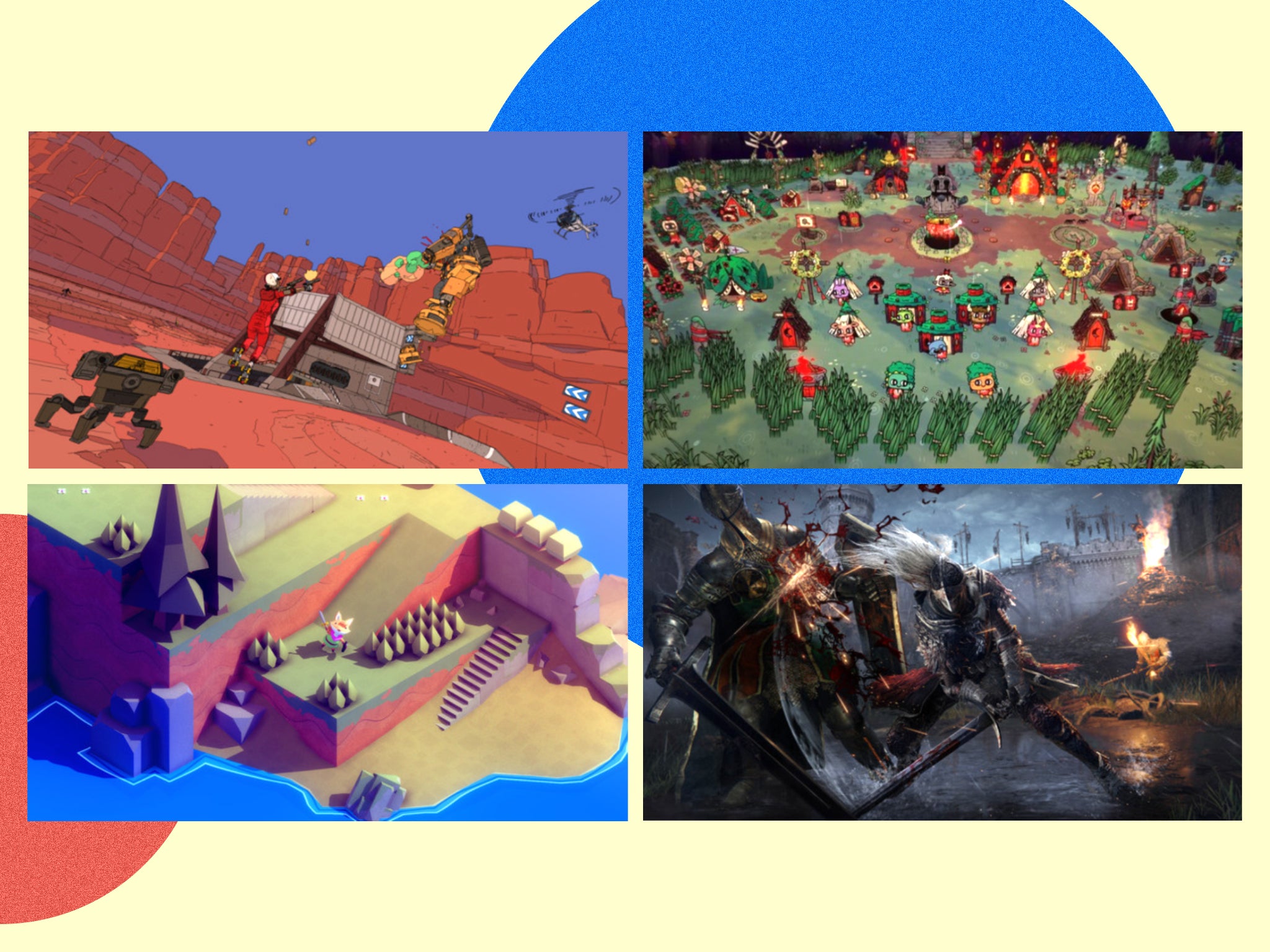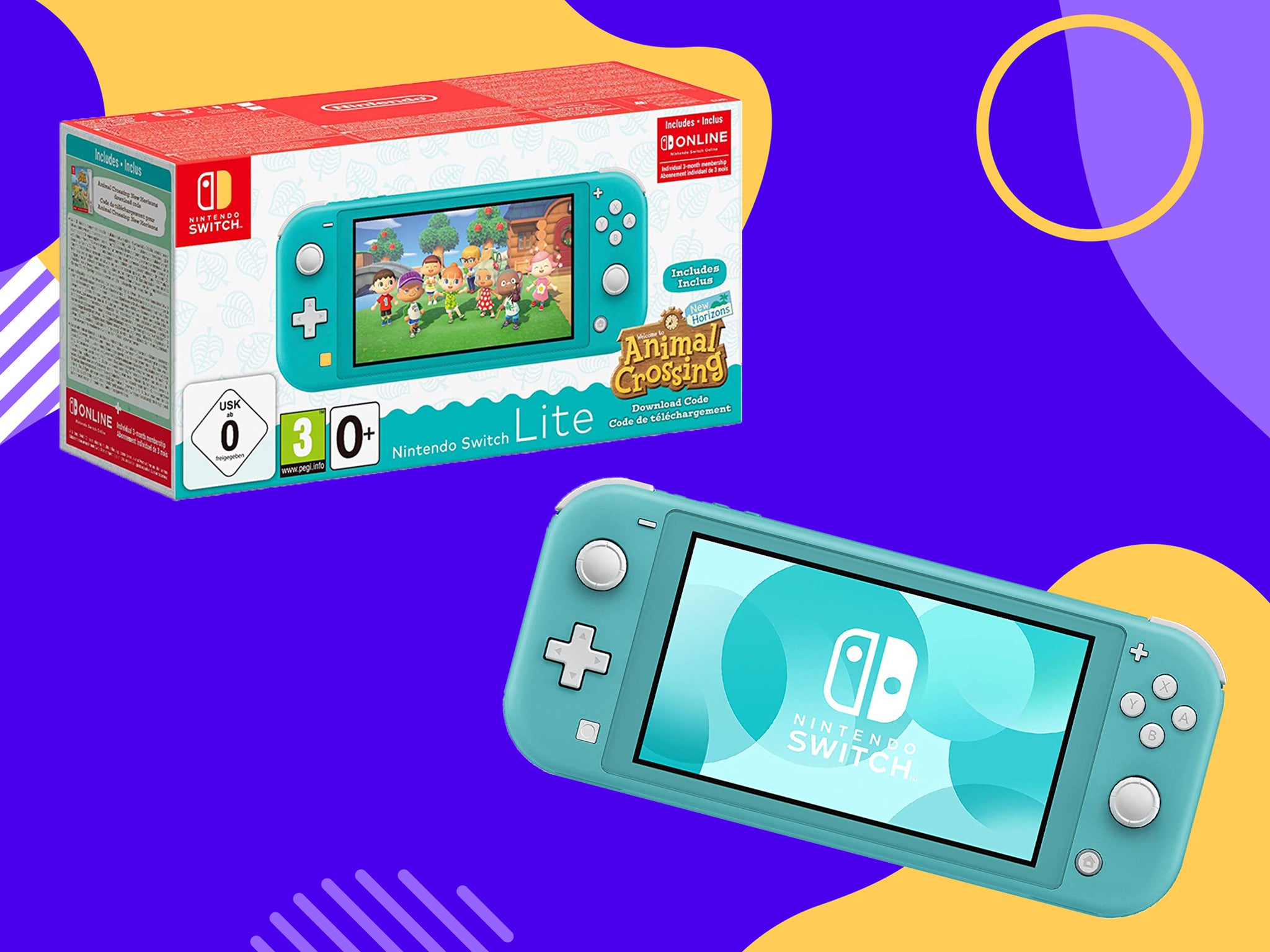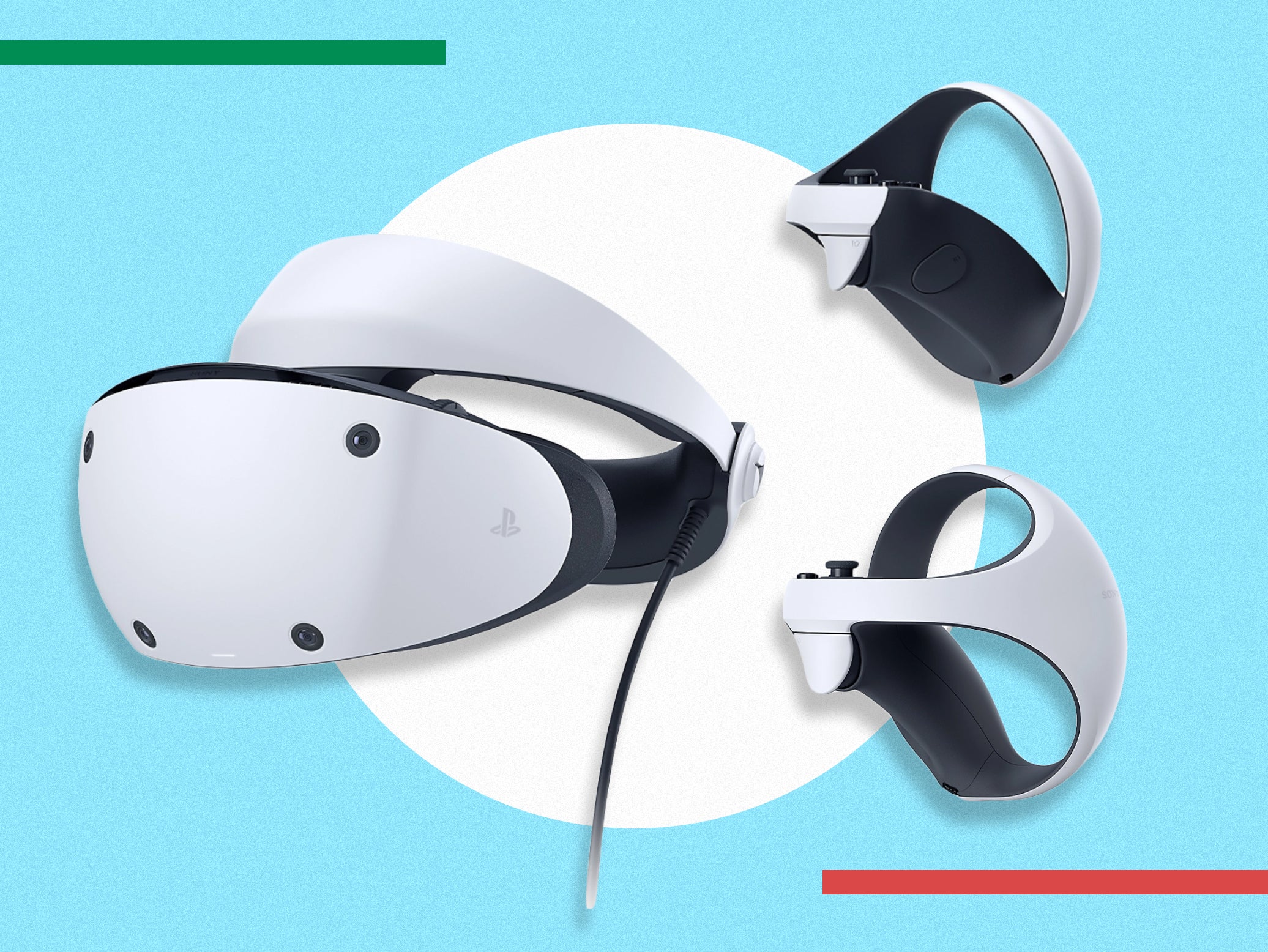Splatoon 3 review: With a fresh coat of paint, Nintendo has delivered its best ink-based shooter yet
The Switch’s latest splat-em-up is the strongest in the series so far
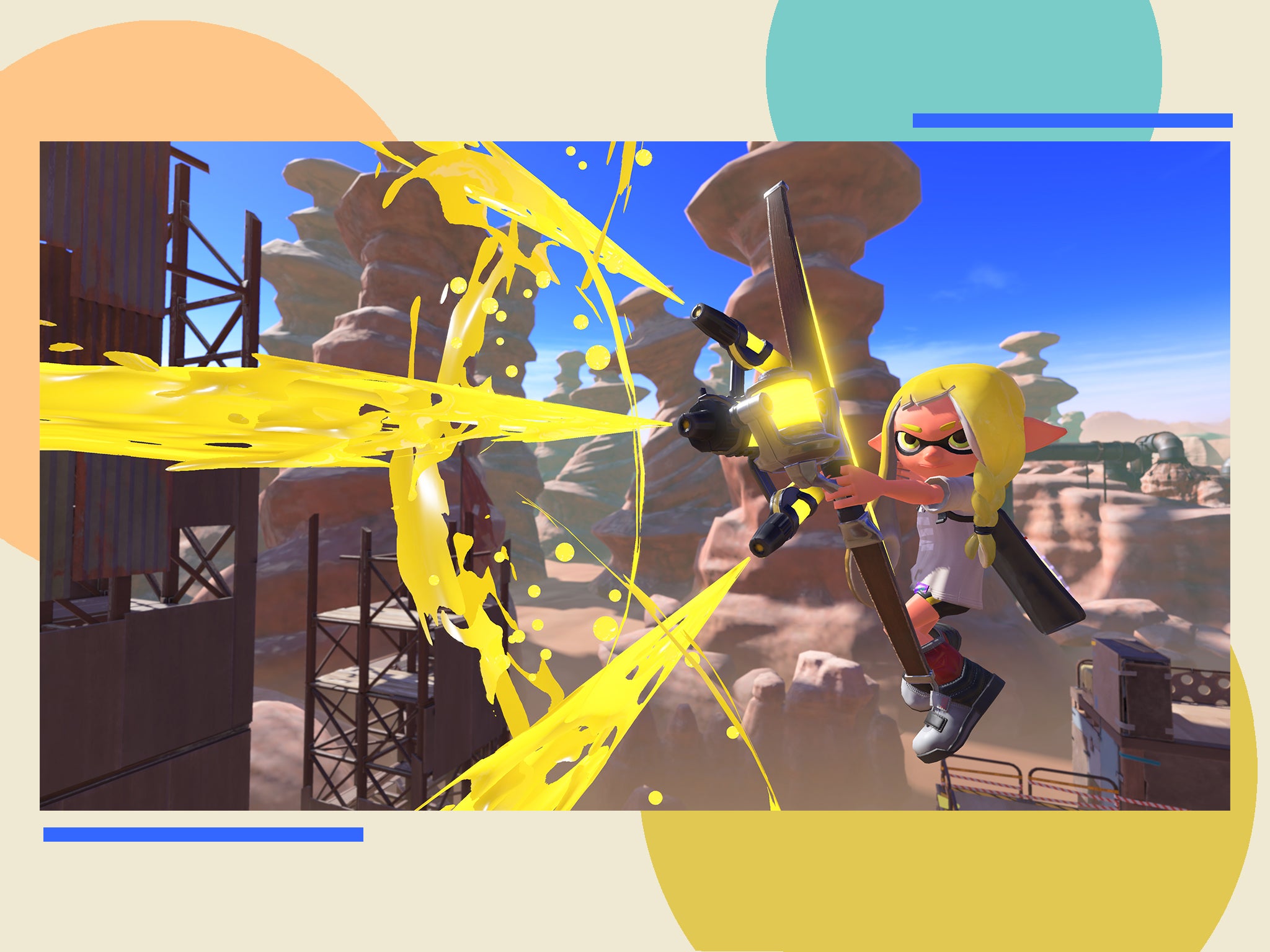
As a relatively recent addition to Nintendo’s burgeoning roster of original IP’s, Splatoon has carved out a rare niche in a genre that demands competitive edge and satisfying gameplay loops that will see players returning for more action on a regular basis.
With the previous two titles in the series, Splatoon has attempted to gradually improve its formula in the online multiplayer space – an area that PC, PlayStation and Xbox games have usually dominated.
While it’s glossy, kid-friendly image may deter those looking for serious online play, Splatoon 3 offers one of the most comprehensive competitive shooters for its unique approach that only a company like Nintendo could come up with.
As with previous titles in the Splatoon series, its competitive nature is only exacerbated by its highly addictive game modes and gunplay, while embodying the ethos that more is indeed more, making excellent use of the Nintendo Switch’s modest hardware.
Splatoon 3 fills its bucket to the brim without changing its formula and in doing so, has crafted its best entry in the series to date. Read our full review below to find out more.
How we tested
Our experience with Splatoon 3 is based on a playthrough in handheld and TV mode on the Nintendo Switch OLED. During our time with the game, we were able to play through the game’s single-player campaign, and other online game modes, such as the cooperative “Salmon Run”, “Turf War” and “Anarchy Battles”. Our experience with the game’s “Splatfest” features was based on the time-limited world premiere, which took place on 27 August 2022.
‘Splatoon 3’: £49.99, Nintendo.co.uk
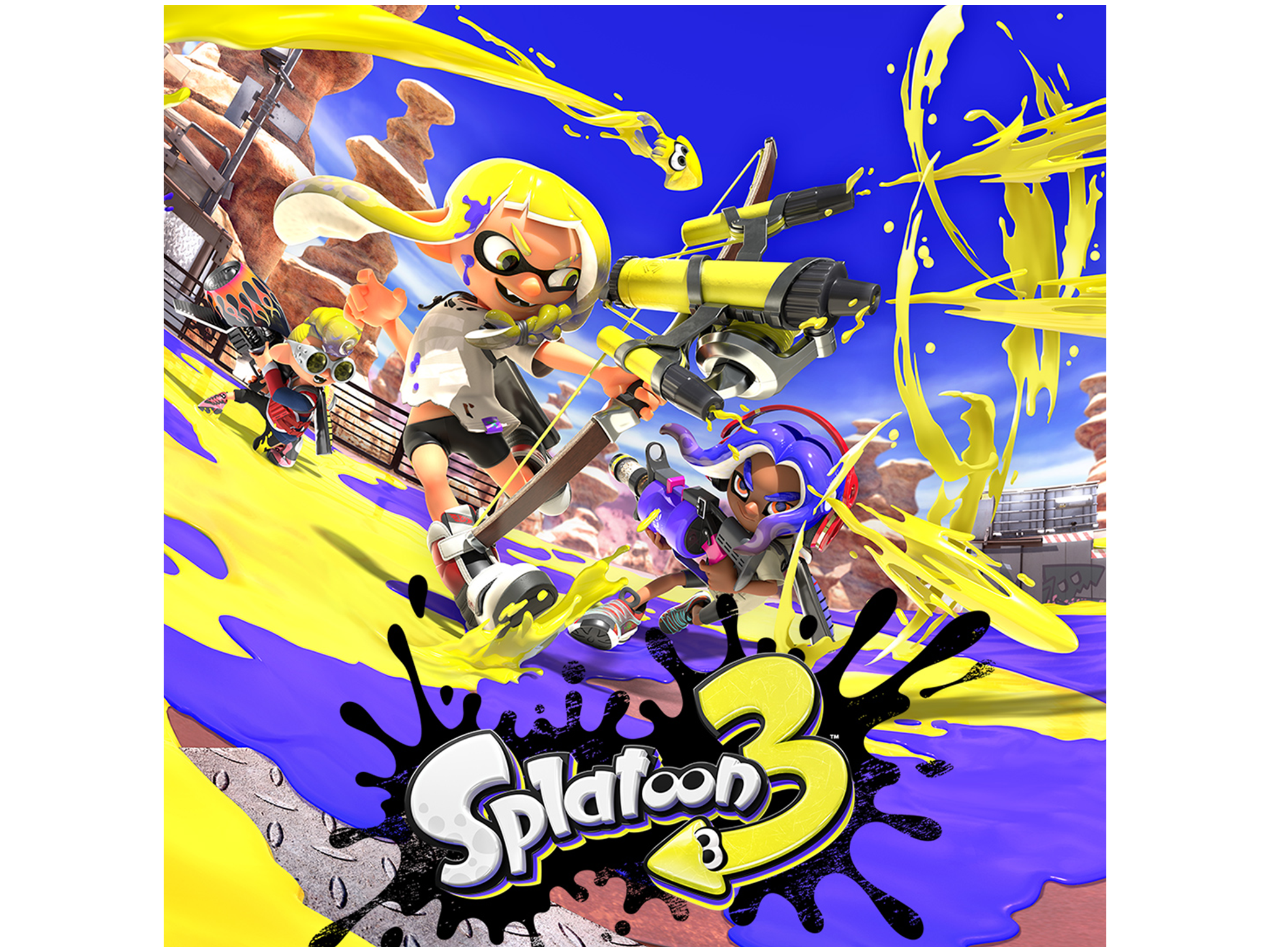
- Rating: 9/10
- Platforms: Nintendo Switch
- Release date: 9 September 2022
- Age rating: 7+
If you’re unfamiliar with the series, players control an “Inkling” or “Octoling” that is able to spray paint on enemies and over surfaces, using a range of weapons, as well as transform into an octopus to swim through their coloured ink, move around walls and floors at higher speeds and refill their ink gauge. Characters can be slowed down and take damage if they touch different-coloured ink but, by regularly laying down fresh paint, characters are able to cover long distances, as far as their painted paths take them.
There’s a variety of weapons that can deploy ink in different ways. The standard “splattershot” is a good all-rounder with an average range and accuracy, while the “splatroller” works well as a short-range weapon that can lay down paint over a wider area.
New weapon types have also been introduced such as the tri-shooter – a three-pronged bow and arrow that can be charged as well as the “splatana”, which works well as a sword-like weapon. Each weapon loadout also comes with a consumable item, such as grenades or shields, as well as a special weapon that can be activated once enough paint has been sprayed.
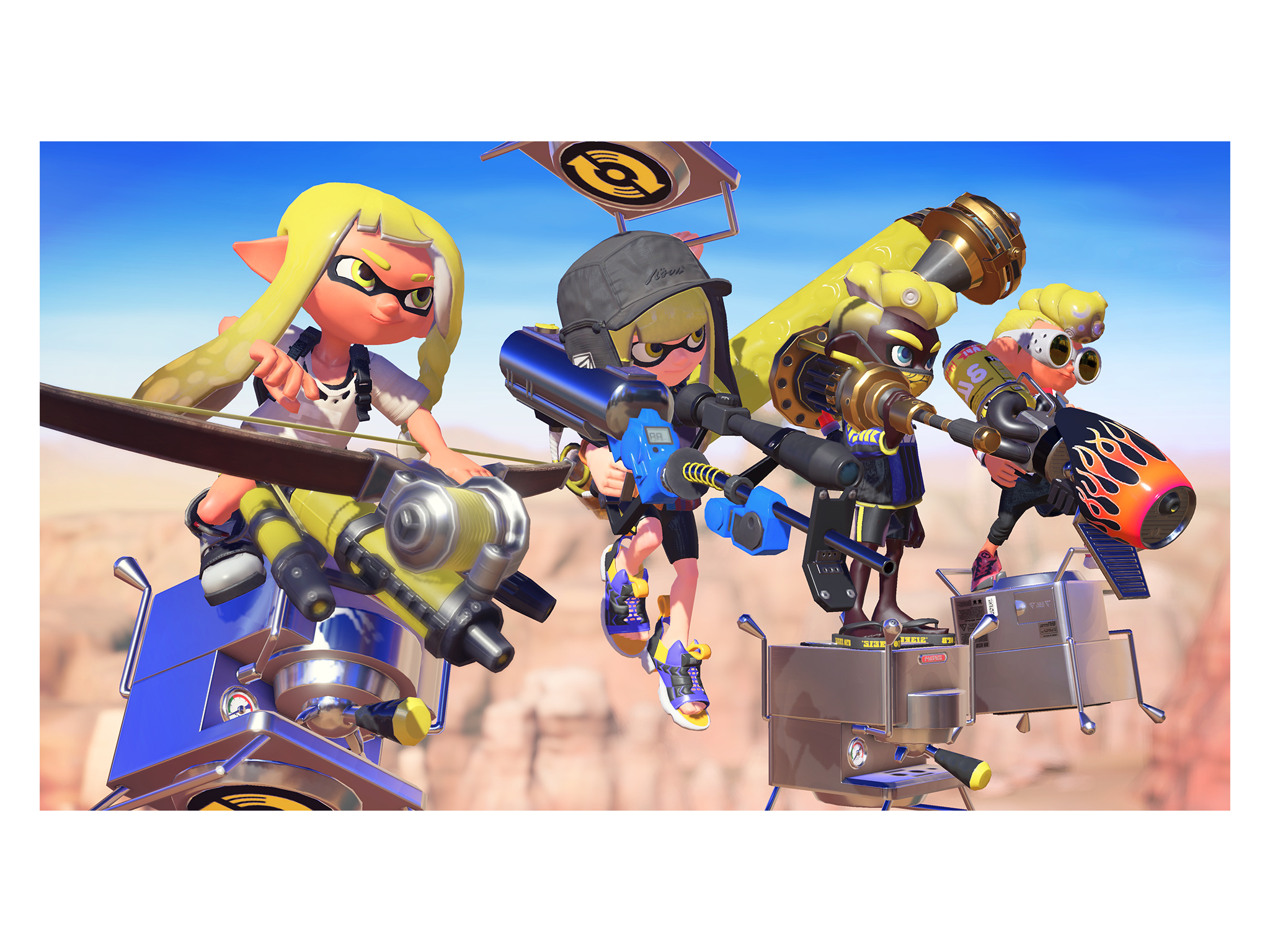
Each loadout offers something for different play styles, and switching between them can lead to fun opportunities to learn their intricacies, strengths and drawbacks. Equipping a simple bucket of paint led to some fun opportunities for surprise attacks from the lowground, while a sniper rifle means enemies can be picked off from above.
As well as weapons, players are able to customise their avatars with different headgear, clothes and accessories that benefit from more than a cosmetic facelift in a streetwear style. Different attributes come with each piece of clothing, such as faster movement with a pair of trainers, or higher resistance to ink damage with a protective headguard. Different bonuses can be unlocked for each piece of equipment upon frequent use, and abilities can be reassigned, meaning players are able to choose their favourite fit and customise it to their preferences.
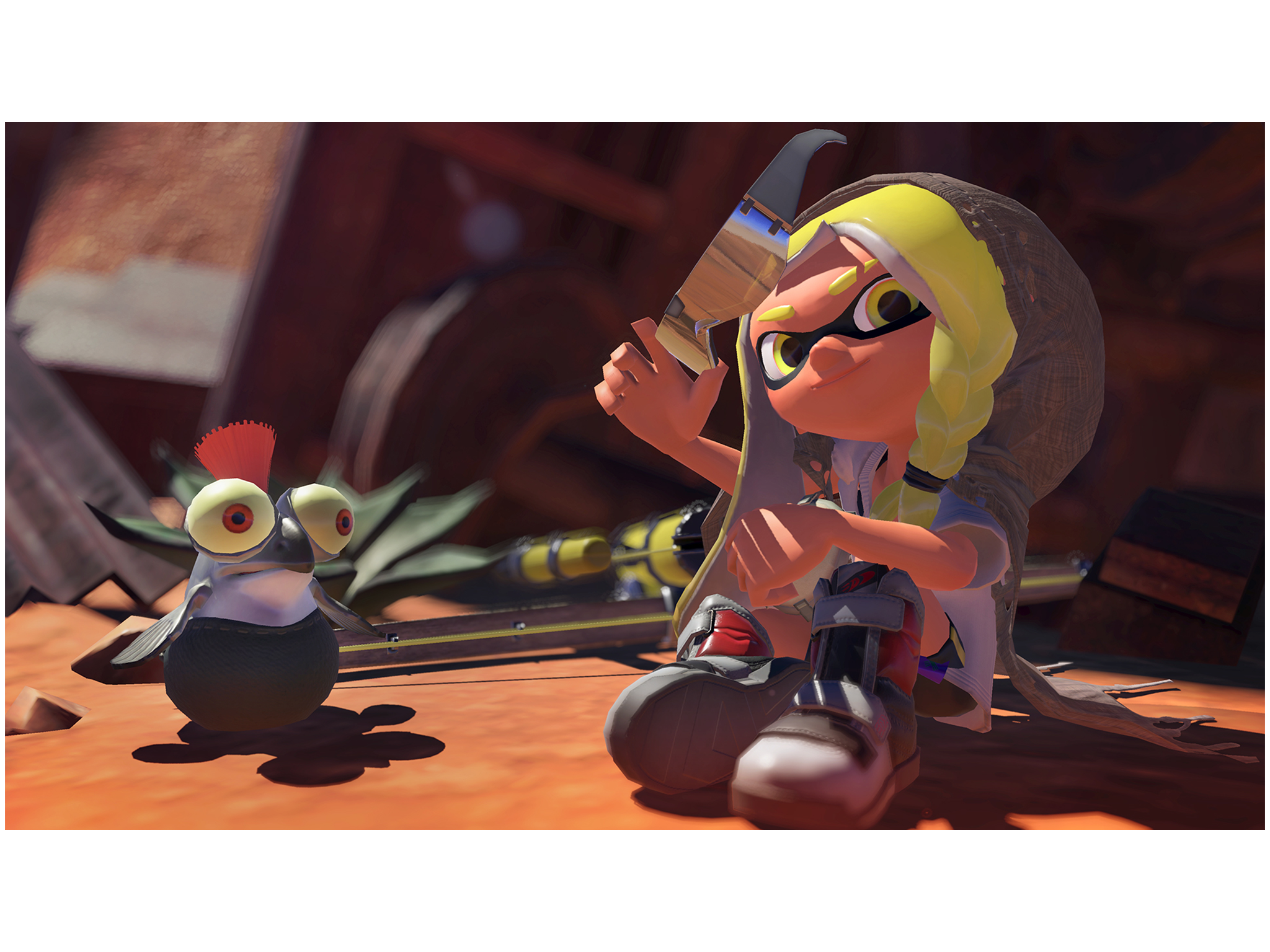
For new and returning Inklings, a single-player mode is available, titled “return of the mammalians”, which sees players enter a crater in Alterna to take on the Octarian army with a variety of different weapons.
Each level hub is fully explorable with a number of hidden items, collectibles and upgrades to locate, along with a serviceable backstory. Some of the levels are little more than a mobile shooting gallery, with enemies that are easy to outwit, but some memorable segments make for a more in-depth offline experience than in previous titles, with the kind of thoughtful level design and theming you would expect to see in a platformer such as Super Mario 3D World, with an obvious emphasis on run-and-gun moveability.
While multiplayer is the clear focus for Splatoon 3, the single-player component remains a much-needed addition to the core experience, not only so that new players can get their heads around the various systems, weapons and controls but also as a breather from the back-to-back online matches where players will spend the majority of their time.
The main sell for this third installment is “Turf War”, which is Splatoon’s colourful and fast-paced take on a traditional team deathmatch. Two teams of four compete in a three-minute match to paint as much of an arena in their respective colours as possible. Rather than focus on the number of eliminations or death counts, match victories are purely determined by a percentage of surface coverage, which is illustrated in a satisfying mural at the match conclusion.
It means there isn’t such emphasis on performing the most kills (or “splats”, in this case) as it also rewards defensive gameplay, with players being individually rewarded for meticulously detailing every corner away from hectic firefights. It’s not only immensely satisfying and endlessly replayable, it also benefits from a high skill ceiling once players get used to effective strategies, such as map familiarity and timings for special weapons.
New and returning maps also bolster the replayability of Turf War, showcasing Splatoon’s knack for environmental design and mobility. New additions based on the game’s “Splatlands” setting include “Hagglefish Market” and “Undertow Spillway”, and are particular highlights, with previous favourites such as “Hammerhead Bridge” and “Inkblot Art Academy” returning from previous titles. Each map has its own benefits and drawbacks but effectively lay out chokepoints, open areas and, most importantly, symmetry, while all remain visually distinct and memorable.
Different online game modes are also making a return as “anarchy battles”, which can be completed as a series of successive game types or played solo. Each one follows a similar play style to other games under a different name, such as “Splat Zones” (King of the Hill), and “Tower Control”. While these ranked matches can go through several rotations and offer different ways to play in a competitive match.
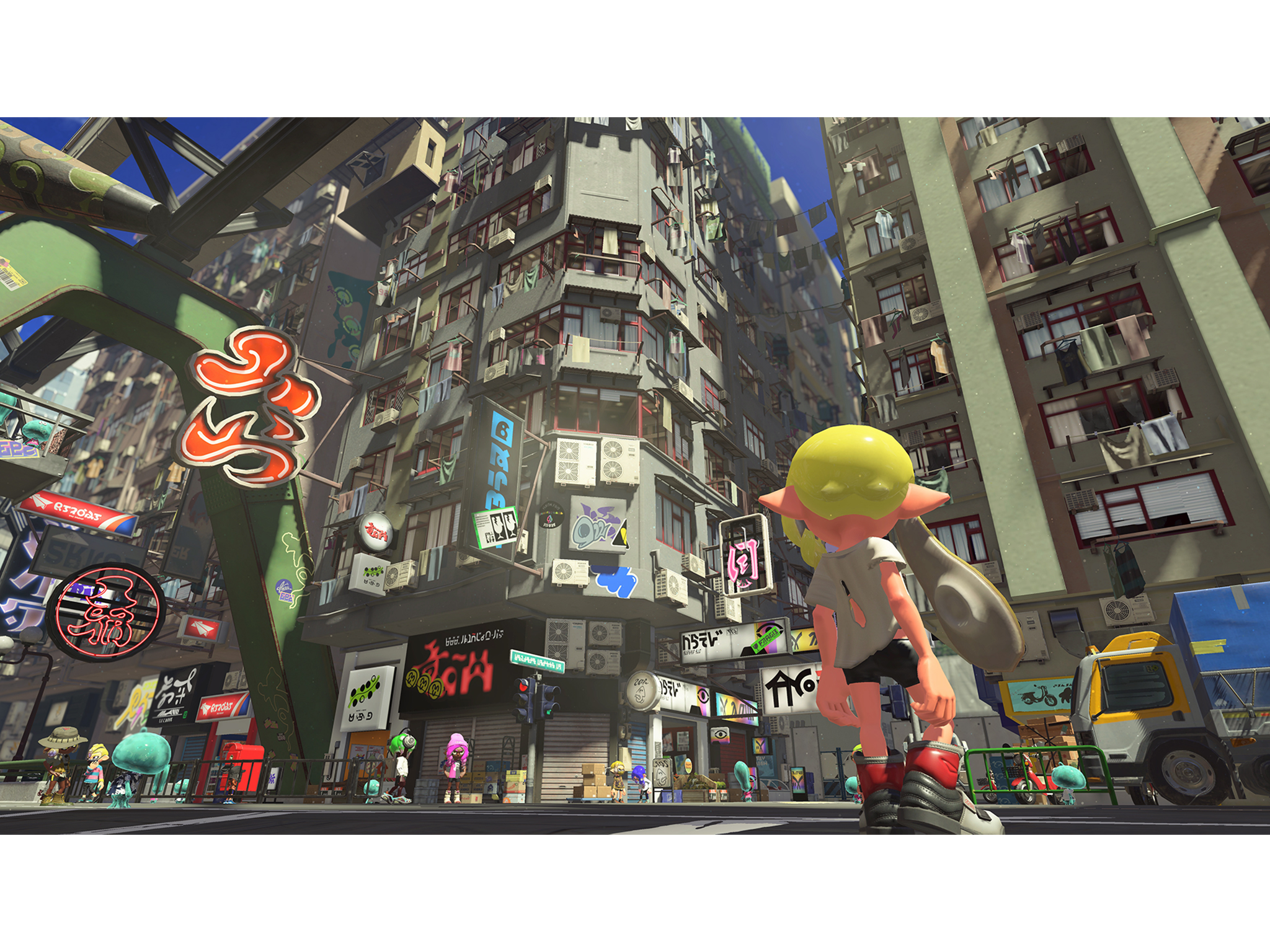
One of the most significant updates to Splatoon 3 is a rejig of the “Splatfest” format, an online event that takes place over a set timespan, where players can choose which team to root for, with the winners declared after the event has ended. Traditionally, these have been split over two teams but now players are able to make a choice from three.
The recent world premiere debuted with team rock, scissors, and paper as a way to showcase how these game modes would work. In the first half of these events, two teams battle it out in a Turf War, but during the second half, a third team is introduced, comprised of the winning team who then have to stand their ground against two opposing teams on opposite sides of the map. It’s wonderfully chaotic and adds an extra layer of intricacy to Turf War that makes for a welcome boost to an already winning formula.
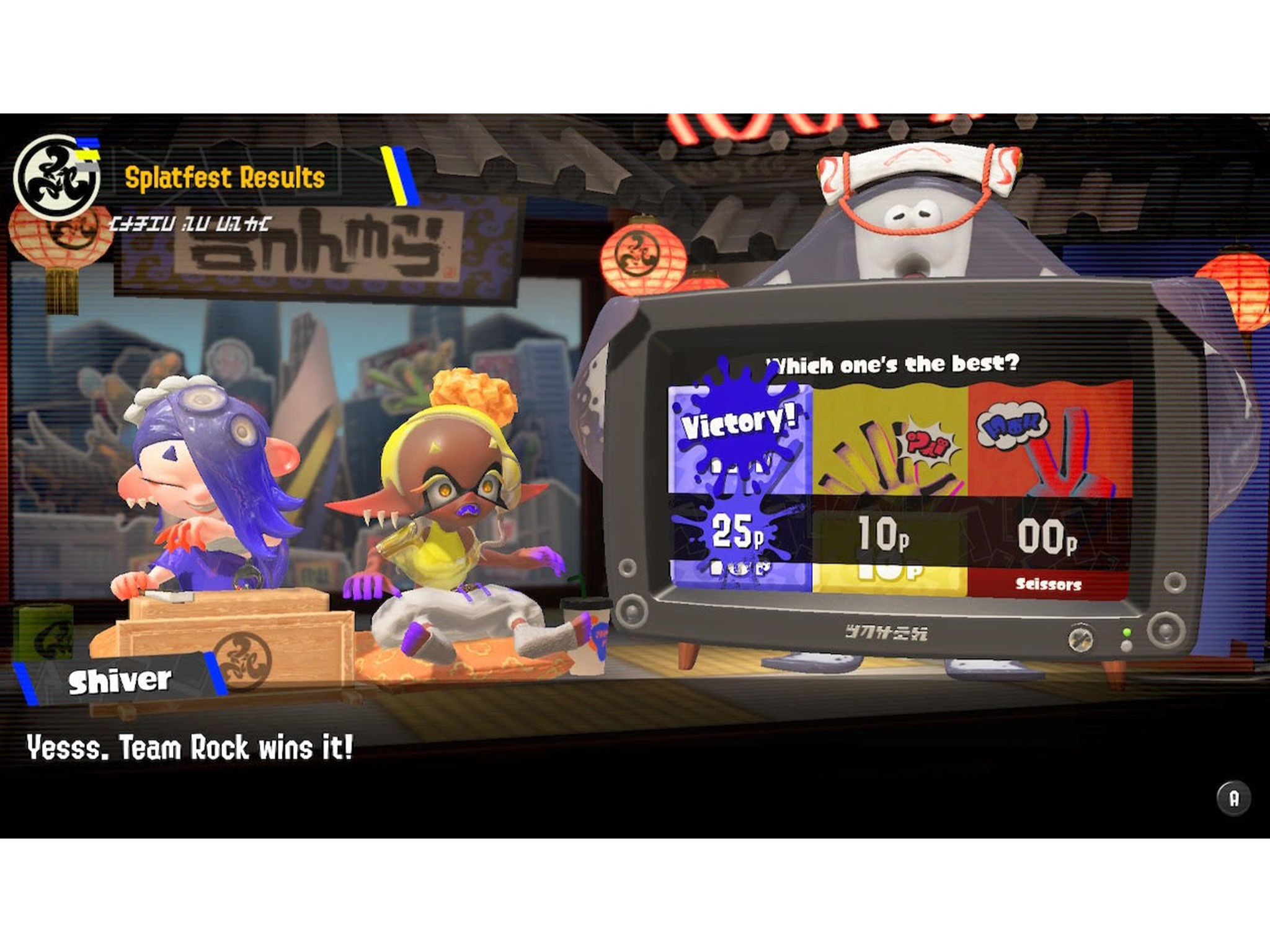
Another returning game mode is “Salmon Run”, which sees four players work together to collect golden eggs from “Salmonids” as they attack players across three waves. It’s a particular highlight for its varying difficulty and wide range of randomly generated boss encounters and hordes of enemies. After three stages, there is a small chance an extremely difficult “King Salmonid” encounter will take place. Players are rewarded if they win but if they lose, they are still able to collect their winnings from the prior three stages.
Introduced in Splatoon 2, Salmon Run was previously only available to play during set time periods but now that it can be accessed at any time, without being restrained to a set schedule. Nintendo has done well to address one of the most frustrating concerns with this popular game mode, which will be a relief to anyone dissatisfied with Splatoon 2’s obtuse restrictions to access it.
The verdict: ‘Splatoon 3’
Splatoon 3 is one of the most enjoyable and accessible multiplayer experiences currently available on the Switch. By sticking to its guns (or paint rollers), Nintendo has crafted a competitive shooter with near-universal appeal in both its presentation and simplistic take on team-based deathmatches.
It’s strong competitive offering is only improved by the addition of its capable single-player and cooperative game modes, which means there is a well-served rotation of different options to try out. Fans of previous Splatoon games will enjoy the continuity this third instalment serves and newcomers looking for an online game with a twist will find plenty to wrap their tentacles around.
